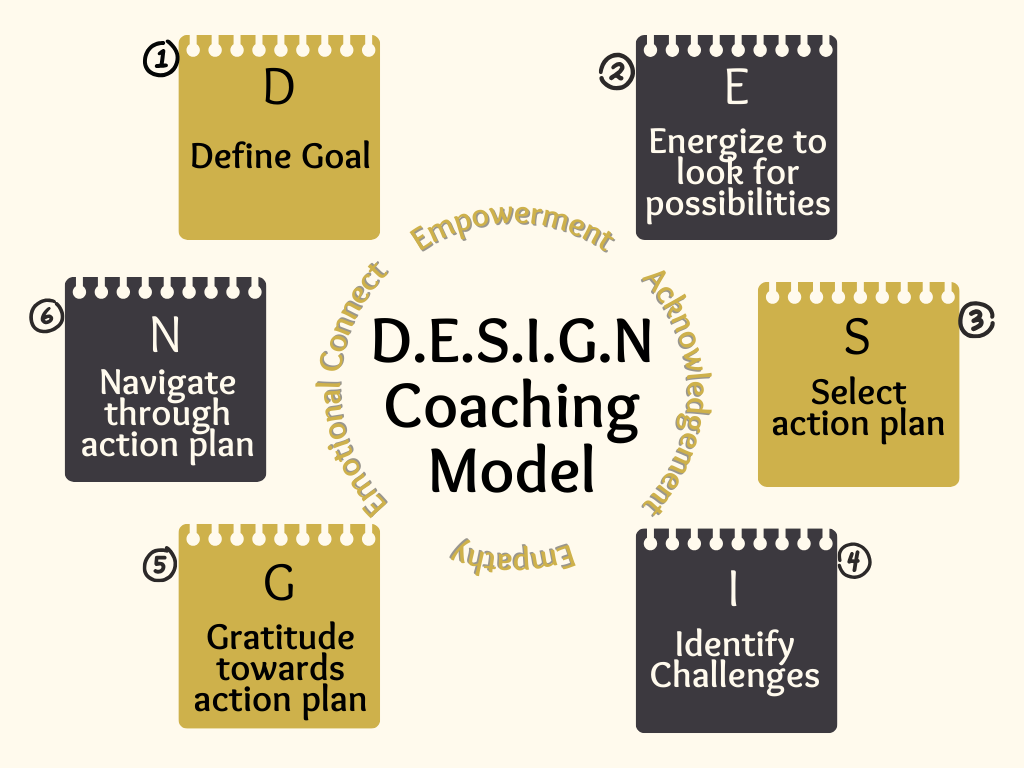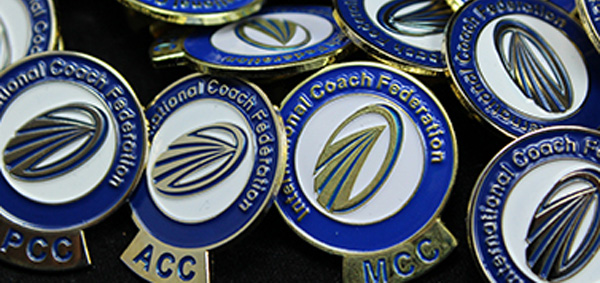Contracting in Coaching
A decade of coaching practice and mentor coaching has taught me about the power of contracting in coaching conversations. Clear learning is that a loose contract gives ambiguous results. We can use the analogy of a flask, tighter the cap, longer the drink stays hot/cold. All the coaches I have supervised had most of the time had insights regarding contracting to be the key reason for coaching conversations to not show clear results.
Before we dig deeper let’s look at the meaning of the word “Contract”. As per dictionary “contract” is an agreement between two or more parties for the doing or not doing of something specified”. While professional contracting takes care of the two parties (coach and coachee), the “more” parties who have a significant stake in the development of coachee may get missed in the intervention at times. As a result, the coachee may see the benefit of the coaching intervention however others may struggle to recognize the shifts.
The ROI of coaching had always been in question and the major reasons generally are lack of clear contracting with stakeholders in the coaching journey. Making it a cozy journey between the coach and the coachee may bring comfort to the coachee however this approach carries less accountability to the organization that is funding the journey. Organizations find it hard to see ROI for five key reasons:
- Stakeholders are unaware of “why did the coaching start?”
- What’s their role and limitations as stakeholders?
- How to measure the behavioural change that could be subtle during the journey?
- How to notice changes in the virtual environment when the exposure is limited?
- What to expect from coach and coachee?
With the world changing fast, organizations need more from coaches which may demand coaches to expand the definitions and scope of coaching interventions. It stretches and challenges the coaches to build more skills. When organizations hire coaches, they expect visible change and not just good listeners. That’s probably the reason why team coaching is widely becoming popular because it fits the organization’s requirement of developing people with organizational purpose versus individual agendas and makes it a cost-effective proposition for them. To ensure more and more effectiveness of coaching interventions, I clearly see the need for 5 types of contracts in an individual coaching journey:
- Coaching Engagement Contracting (E)
- Systemic Contracting (E)
- Contracting with Client (E)
- Client’s contracting with Self (I)
- Coaches’ contracting with Self (I)
*E = External refers to the contracting conversation with another person and can be made tangible to a large extent.
*I = Internal refers to contracting with the self which can be hard to be made tangible.
While 1 and 3 are widely practiced, most of the coaching engagements do not show results due to a lack of water-tight contracting. The reason contracting needs to be focused and sharpen is because contracting supposed to define the shape of the results organization wants to see at the end of the engagement like Marshall Goldsmith says change is considered the change only when it changes perceptions.
All these contracts open more perspective and perceptions for coach and coachee to understand “What really needs shift?”. As seen in several engagements the story coachee is more about their identity versus reputation and organization context relies more on reputation. Coachee’s perspective of change can mismatch with what the environment needs it and hence till the time as a coach we do not have clarity about what “really” needs to change, it’s safe to assume that we aren’t seeing the complete picture.
- Coaching Engagement Contracting (E)
Coaching Engagement contracting is External contracting. External Refers to the contracting conversation with another person/s and can be made tangible to a large extent.
This contracting is commonly practiced and known as coaching agreement which defines general norms of engagement like duration of engagement, coaching definition, standards that coach practices, terms, and conditions of the coach, fee, cancelation policy, guidelines around coaching profession and process. It is a sort of framework to define the scope of work and terms and conditions.
- Why are we working together?
- What is coaching? And how is it different from other modalities?
- What would the general practice of the intervention look like?
- What is the cancelation policy?
- What are the guidelines in case there is no show in some session?
- What is the duration of the engagement?
- What would be the duration of the session?
- What would be the role of the coach?
- What are some of the expectations from the coachee and the organization?
- What can be expected out of the coach and coaching engagement?
- What is the fee for the engagement/session/s?
- Systemic Contracting (E)
It is widely seen that when coaches are hired for a coaching engagement we may interact with the L&D, HR, or direct manager of the coachee to understand their expectations from the coaching engagements to gather inputs. Systemic contracting truly means to read all/most components of the system in which the coachee operates. Systemic contracting has a bit wider scope and can be very helpful for the coach and coachee to engage in. Some of the issues that crops up in coaching engagement are not real issues but the mismatch of expectations and lack of clear/open communication, systemic contracting can support in ironing out those issues.
Systemic contracting involves more stakeholders than just L&D, direct manager, and HR. It considers stakeholders that have a direct or indirect impact from the coaching engagement for example the clients, team members, family members to gather perceptions and expectations. While reading this it may look intermediating however an important point to note is to make it a safer collaborating process of change and development.
While doing systemic contracting the coachee must select these stakeholders and cover everyone that can play an important role. The coaching engagement stays psychologically safe for the coachee when the coachee takes the accountability to contract with them about seeking honest feedback periodically. It can be helpful to know more about systems while doing systemic contracting.
So, What are the essential systems to be considered for the coaches? We can use the PESTLE framework to look at the larger system, few years back this may have not proved very relevant however with pandemic impacting everyone in the world, considering PESTLE in coaching conversations is becoming essential.
The following questions can be leveraged to look at closely connected systems:
- Who are the top 10 stakeholders of the coachee? (People who get directly/indirectly impacted by my daily conduct)
- Who are the people who can give honest feedback without disrupting the relationship? (Coachee needs to feel safe here)
- What is one change these stakeholders expect from the coachee and why?(Note: It’s not about changing the coachee as per the environment but to understand the key patterns coming from most of the stakeholder and finding a connection with the real change coachee is willing to make)
- What does the system proactively collectively need from the coachee?
- What is the real challenge coachee is facing in addressing the need?
- What are some of the internal changes coachee themselves want to bring that can be visible in the environment?
- What does the coachee needs from the system?
- What’s the impact of the environment on you in these circumstances?
- How are you impacting the environment with your way of being?
Looking at the coachee as part of the system and a whole system itself provides a perspective to the coachee and the coach to create a holistic approach for coaching work. Three key insights that support the systemic approach are:
- No change can take place in a bubble
- Self-awareness doesn’t convert to change always
- Change can positively take place when supported by the environment through acknowledgment and acceptance
- Contracting with Client (E)
Contracting with the coachee is an obvious step in any coaching engagement as this is also the conversation starter. Understanding what the coachee wants to achieve from the journey is asked in every engagement. Contracting with a client can be looked at in four sub-contracts. First, one being the public contract, second being the private contract.
A public contract is where goals, progress, and updates can be shared with the stakeholders
A private contract is where the information is strictly confidential between the coach and the coachee except in the situation where the coachee’s life may be in danger.Both these contracts again can be looked at another two levels (double click as we sayJ). Journey Level Contract and Session Level Contract. Here are some questions that can clarify all these four contracts
Public Contract
Journey Level
- What are 3-4 goals you would like to achieve to create systemic impact in six-eight months?
- If you look back from two years, what do you see being achieved and celebrated?
- What is the goal, the system wants you to achieve in the next six months?
- What is the success measure of these goals in both cases?
- What are some of the visible challenges in achieving them?
Session Level
- Based on our conversations so far (if applicable) what do you think you have achieved so far?
- Which goal out of your larger charter would you like to focus on today?
- What would make you feel that the session was successful?
- To achieve what you want to achieve, what is that you do not have?
- How long have you been deliberating on this and what did you learn from that?
Private Contract
Journey Level
- Where would you like to see yourself in your life three years from now?
- What has been unfulfilled in life so far that you would like to attend to?
- What does balance look like for you?
- What’s the desire you would like to pursue through this engagement?
Session Level
- Based on our conversations so far (if applicable) what do you think you have achieved so far?
- Which goal out of your larger charter would you like to focus on today?
- What would make you feel that the session was successful?
- To achieve what you want to achieve, what is that you do not have?
- How long have you been deliberating on this and what did you learn from that?
- We started this conversation with A, and now what we are talking about is B, where would you like to focus on at this moment? (re-contracting that’s helpful especially when the conversations are dense and diverse)
One of the major pitfalls about client contracting is lack of documentation, lack of re-contracting, and lack of gauging progress so far. Since the conversations are a mix of emotions, strategies, beliefs, thoughts, facts, and opinions, there is a tendency for the client to overlook/forget some of the benefits, the clarity they have gained, and hence articulating that several times support them to recognize the progress in their own thinking process.
- Client’s contracting with Self (I)
This type of contracting is hardly talked about and practiced. The reason most of the coaching engagements are long is that it takes few sessions for the client to commit to their own change. The first few sessions mostly are testing waters, building trust, and building rapport not only with the coach but also with the coaching process. The rational and egoistic mind doesn’t give in easily. It is also important to note that being adults we do not make the change till we have started paying the heavy cost to it and hence willingness plays a pivotal role in the partnership of change. Some of the questions to support this contracting early on are:
- What is making this change necessary?
- What will happen if you do not make this change?
- What triggered the thought about making the change?
- What are you willing to do during the process which could be hard for you?
- What can you learn about yourself when it comes to “making change”?
- What could potentially come in your way during this journey of change?
The coachee may not have the answer to all the questions, in the beginning, however, idea is to begin the reflection journey early on and support the coachee to pick strengths from their own life journey. Support them to create empowerment from “What about them made them sale through the struggles of past?”. Since coaching is a lot about intentional change, it surely needs commitment from the client and every commitment starts from contracting. Some of the examples of clients contracting with self could be making time for coaching sessions, proactively planning sessions, reflecting before and after coaching sessions, taking actions, keeping the coach informed about the progress, etc.
- Coaches’ contracting with Self (I)
Being human, coaches have their own internal struggles that are running parallel at the time of their coaching career. Contracting with self at the journey and session-level is very critical for the coachee’s journey as well as for the coach to do their best work ethically and intentionally. This kind of contracting demand self-regulation and self-discipline from the coaches’ side and requires coaches to build a ritual to remind themselves of these promises.
Journey Level coaching demands the coach to make choices about the kind of clients they work best with verses where the opportunity is available. Some of the reflection questions for the coach could be:
- Do I resonate with the context of the client?
- What is my sense about this engagement from the chemistry session?
- What are some of the questions I have in my mind about the client and their goals?
- Am I the best person to support this client?
- Is it the right time in my life to coach?
- Do have the mental, physical, and emotional space to take on this journey with my client?
Re-contracting during the journey:
- Am I serving my client fully?
- What are the places I am feeling challenged?
- What are some of the places I need to focus on to be more effective?
- What am I learning about myself through this client?
Contracting for journey also invites commitment from coaches to get supervised from time to time to see some of their blind spots. Every contracting is an opportunity to create commitments, boundaries, and non-negotiables of the work we choose to work on.
Session Level- This level of contracting is the most interesting one. David Clutterbuck as spoken about Seven coaching conversations which are as follows:
- My dialogue with myself before the session
- The client’s inner dialogue before the session
- My inner dialogue during the conversation
- The spoken dialogue
- The client’s inner dialogue during the conversation
- My reflection after the conversation
- The client’s reflection after the conversation
The seven conversations make the coaching space more complex and need coaches to pay laser-sharp focus on all these seven areas.
Interestingly, what comes in our way is not what is outside of us, it’s what’s inside.
While we work towards building the competence of listreening to “what has not been said by the client”, we are also required to build competence around the following:
- How am I relating to the client?
- What about me is coming in the way?
- What are some of my thoughts that are creating judgment for the client?
- Am I totally present in the conversation?
- Where is this conversation going?
- Where am I hesitating to challenge?
- Do I understand their dilemma fully?
- Are we sticking to the contract?
- Whose agenda is being pursued here?
Being in practice there are several occasions when we are distracted by our own stuff. Our thinking, experience, distractions, emotions, beliefs, and habits come in our way. Looking at the mobile, thinking about the next client/meeting, consumed by some of the emotional issues and biases are some of the common ones that prevent us to do our best work.
Some of the practices that have supported me in my journey are: Writing an oath for myself and reading it before every coaching conversation to center myself, meditating for few mins before every session, keeping my phone on silent and taking time to center, not checking my e-mails at least 30mins before the session to avoid any surprises.
During the sessions, taking a short break in case I am feeling unavoidably distracted, learning to quickly re-contract with myself and client about “where are we in the conversation based on the initial contract?” etc. has been helpful.
All the five contracts and their sub-contracts have an interplay in every conversation and impact the course and destiny of the journey in some or the other way. Write to me at jayabhateja@abhyudayacoach.com for any questions related to the subject of this article.
About the Author

Jaya Bhateja, ICF Board of Directors, Master Certified Coach (MCC)
Jaya Bhateja is a Master Certified Coach, focussed on creating tangible results and managing performances for corporates and coaches for the last 16+ years. Through climbing the success ladder & accomplishing an upraised path for herself while going through her own journey of self-accountability, reflection & change, the expertise that she has, is purely first-hand knowledge. The same is what has further helped her with career choices & stability of becoming an executive coach & building a business from scratch while helping great leaders and coaches further upskill their potential. She runs a coaching and consulting company with the name Abhyudaya Global Coach Circle.
She has been the recipient of three awards in last six years. First one was 100 Best Global Coaching Leaders Award by world HRD congress (Feb 2017) & second was the Young Leader Award (International Coach Federation) in 2019,Top 10 L&D Woman leader in India 2021.






